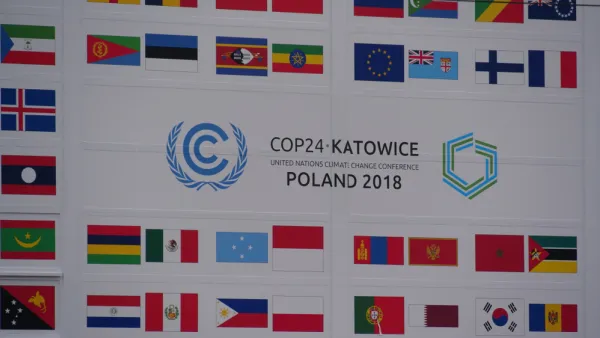After two weeks of negotiating in Paris, almost 200 countries agreed to a plan to reduce emissions, though not to the level supporters had hoped. Nonetheless, the COP21 agreement may be an 'inflection point in human history,' notes The Times.
"With the sudden stroke of a gavel on Saturday night, representatives of 195 countries reached a landmark climate accord that will, for the first time, commit nearly every country to lowering planet-warming greenhouse gas emissions to help stave off the most drastic effects of climate change," writes Coral Davenport who covers energy and environment policy for The New York Times.
With that, the delegates achieved what had been unreachable for two decades: a consensus on the need to shift from carbon-based fuels and a road map for the 195 nations to do so.
The decision to accept the document was unanimous. As President Obama tweeted, "this is huge." However, demonstrators argued that the accord was too weak.
Some key points reached in the agreement [emphasis added]:
- "At best, scientists who have analyzed it say, it will cut emissions by about half of what is needed to prevent an increase in atmospheric temperatures of 2 degrees Celsius, or 3.6 degrees Fahrenheit," writes Davenport. "That is the point, scientific studies have concluded, at which the world will be locked into devastating consequences, including rising sea levels, severe droughts and flooding, widespread food and water shortages, and more destructive storms."
- All countries, even developing ones, must commit to greenhouse gas reduction. Prior accords had exempted developing nations.
- Despite a strong push by developing nations to be compensated by wealthy nations for having to adapt to changes brought by global warming, the sum of $100 billion "appears only in a preamble, not in the legally binding portion."
- "The agreement sets a vague goal of having global emissions peak 'as soon as possible,' and a schedule for countries to return to the negotiating table every five years with plans for tougher policies," writes Davenport. "The first such meeting will take place in 2020."
- "Monitoring and verification had been among the most contentious issues, with negotiators wrangling into Saturday morning." [...] "The accord uses the language of an existing treaty, the 1992 United Nations Framework Convention on Climate Change, to require countries to verify their emissions and to periodically put forth tougher domestic plans."
Finally, to deal with the "United States" problem where two-thirds of the Senate is required to ratify treaties, a 'hybrid structure' was developed whereby "(s)ome elements of the accord are voluntary, while others are legally binding," writes Davenport.
Considering that 72 percent of Republicans, who hold 54 seats in the 100-member Senate, deny the existence of climate change, according to Jeremy Schulman of Mother Jones (via Grist), ratification would not be feasible.
Hat tip to Kenyon Karl.
FULL STORY: Nations Approve Landmark Climate Accord in Paris

Analysis: Cybertruck Fatality Rate Far Exceeds That of Ford Pinto
The Tesla Cybertruck was recalled seven times last year.

National Parks Layoffs Will Cause Communities to Lose Billions
Thousands of essential park workers were laid off this week, just before the busy spring break season.

Retro-silient?: America’s First “Eco-burb,” The Woodlands Turns 50
A master-planned community north of Houston offers lessons on green infrastructure and resilient design, but falls short of its founder’s lofty affordability and walkability goals.

Test News Post 1
This is a summary

Analysis: Cybertruck Fatality Rate Far Exceeds That of Ford Pinto
The Tesla Cybertruck was recalled seven times last year.

Test News Headline 46
Test for the image on the front page.
Urban Design for Planners 1: Software Tools
This six-course series explores essential urban design concepts using open source software and equips planners with the tools they need to participate fully in the urban design process.
Planning for Universal Design
Learn the tools for implementing Universal Design in planning regulations.
EMC Planning Group, Inc.
Planetizen
Planetizen
Mpact (formerly Rail~Volution)
Great Falls Development Authority, Inc.
HUDs Office of Policy Development and Research
NYU Wagner Graduate School of Public Service



























